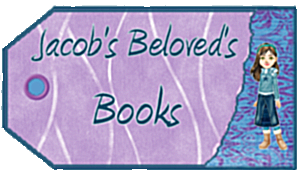Today's guest is Cynthia Racette, author of Windswept. Cynthia has been writing all her life, as a newspaper reporter, editor and novelist. She even asked for (and received) a play typewriter for Christmas when she was about ten.
To be near her children and granddaughters, she and her newly retired hubby, moved to the Buffalo, NY area. Through her daughter, who is also a writer, she got hooked up with RWA (Romance Writers of America) and good things started to happen.
She is now writing more novels, taking lots of trips and relaxing by the pool on gorgeous summer days in Western, NY.
Windswept is a romantic novel of redemption and family values and fighting for what is important. Sailing Windswept has always been a family affair and many of Caroline and David Hartford’s fondest memories have taken place on Chesapeake Bay sailing in all kinds of conditions and exploring the bay.Today, Cynthia wants to talk about continuance of books in print. Take it away, Cynthia!
When husband David is unfaithful and commits the ultimate betrayal by bringing his mistress aboard Windswept, Caroline’s world is shattered. He leaves her and she is forced to rely solely on herself for the first time in her life. She has to be a single parent to her daughter, Lily, and to decide if she can forgive David for tearing her family apart.
As David and Caroline work to put their marriage back together, events and other people conspire against them, over and over. Their relationship begins to heal, but the couple is caught in a horrific storm and waterspout on the bay, heading straight for Windswept. They want a chance to love again but Mother Nature might have other ideas.
What Will Happen to the Print Book?While I think that Cynthia has some good points in this article, I think there is much more to this topic than just comparing the print format to the way of Kodak. Books and the printed word have been around for the length of recorded history - much longer than even the existence of the printing press. I am talking about scrolls, stone tablets, you name it. Despite the prevalence of technology in the digital age, much of the globe can not afford the technology to access e-books. The printed word is hard to make disappear once it is in existence, and it can outlast lifetimes of owners. With e-books, the data is temporary and easily out-dates itself with each technological "update". Plus, books are not simply about how they look - people cherish books for their knowledge - in an unchangeable, solid form - as well as for their kinship, familiarity, and yes, even for their smell. The traditional family Bible is a perfect example of this.
An article in msn this morning has immediate ramifications for us as authors. The question is, what will happen to the print book now that e-books have begun taking over the market? Will it disappear altogether? Will publishers try to struggle on, only to find that maintaining presses for the few copies of print books needed will be too costly, causing it to fold, like Kodak and its ilk?
It's impossible to predict the way everything will react to future markets, but we have some recent past examples to show us how things just might come down. The literary market has actually been slow to respond to the digital age. Music and business correspondence succumbed to the megabyte long ago. There are aspects of print books, though, which may enable it to continue on for some time in specialized forms.
There are, after all, certain features of the printed book which make it more inviting to the casual reader and definitely valuable to the connoisseur. Elements of books that appeal to readers, like illustrations, book covers, typesetting, and other qualities specific to a given print edition are called 'paratexts,' as expounded by Gérard Genette. Bibliophiles argue over whether they are parts of the texts or merely add-ons to enhance it.
The major proponents of keeping some printed books do so for the artistic or theoretic value of the book because some aspects simply cannot be translated to pixels. The authors or proponents of these books claim that the paratextual elements of their books are as significant as the texts themselves. An e-book format would not do justice to such a book. Some first editions of this type are almost artistic treasures as much as they are texts.
There are a number of fine arts presses, both new and of long standing that cater to this kind of book and it is likely that they will continue to appeal to the nostalgic consumer who finds value, both monetarily and personal, in exquisitely presented print books.
As for mass produced paperbacks, they will probably go where they've always gone—household bookshelves, boxes in cellars, garage sale specials and the all-American county dump. Because, as stated in the beginning, regular publishers will not be able to afford to keep printing books when the demand becomes too low. The transition will take time, however. If you have some beloved favorite books on your shelves that you want to keep you'd best not let your spouse bring them out to the garage sale year after next because who knows if you'll be able to replace that beloved copy of Jane Eyre by then.
Some references to the MSN article by Michael Agresta
Thank you for your words on such a volatile topic, Cynthia, and good luck with your new book!



























3 comments:
I hope you're right, Rachel, about the lasting nature of the printed word. I'd like to believe so. I think, though, that at some point we will reach the point I described above, but maybe it'll take a long time. Would that it turned out to be.
Thanks for having me on your website. My book is romantic and not nearly as ponderous as this blog.
someone at a conference once said when things change they don't get smaller, they get bigger. I think both print books (my favorite) and ebooks will be around for a long time to come.
also, just starting reading Windswept and I love it!
Loved Windswept too. Enjoyed the blog and the skilled writing that gave it to us.
Janis Lane
Sandpiper Affair
Post a Comment